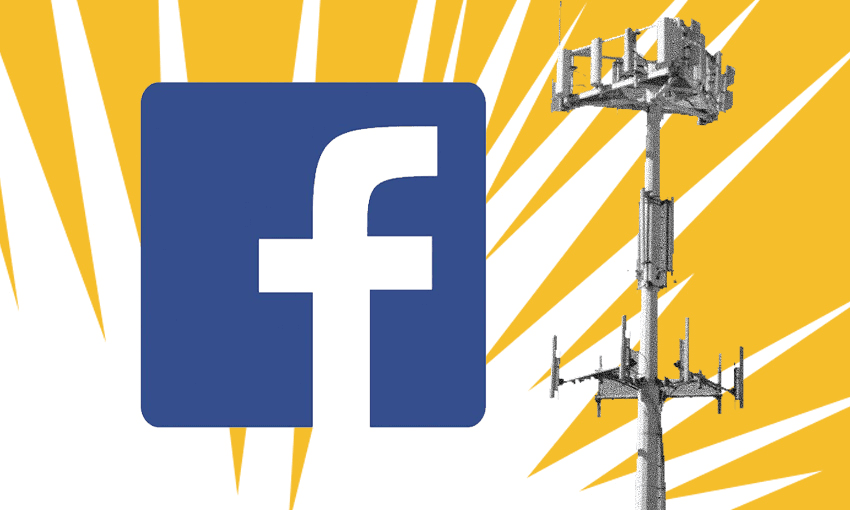Māori are particularly vulnerable to conspiracy theories – especially ones that relate to the eradication of people – because that has been the reality for indigenous people. But if we’re going to protect our whānau from Covid-19, we need to engage, not block.
If you’re Māori and on Facebook, chances are you woke up today to two types of posts on your newsfeed: conspiracies about Covid-19, 5G and Agenda 21, and people telling the folks sharing conspiracies to unfriend them.
I get it. Dealing with disinformation is exhausting. We have to protect our hauora and mauri. But what if in protecting ourselves now, or washing our hands of it, we are inadvertently endangering our future? Excluding and shaming people who already feel ostracised, misunderstood, powerless or neglected is a recipe for failure.
Pushing people out only pushes them to dig in.
A recent Princeton University study found that conspiracies are more likely to find a welcome home in the minds of people who are lonely and seeking meaning. The report’s co-author Alin Coman says this can create a vicious cycle where lonely people will share their conspiratorial beliefs, which can drive away family and friends and result in further isolation. Excluded and ignored, the loneliest among us join conspiracy communities where they feel welcome, which in turn further entrenches their beliefs.
In short, people who are left out are more likely to believe conspiracies.
A recent report from the Helen Clark Foundation describes loneliness as “the painful feeling that occurs when one’s needs for meaningful connection are unmet”. Those most likely to be experiencing chronic loneliness are people on very low incomes, those who are unemployed, Māori, young people, single parents, and some older people, particularly those living alone. In other words, many of the people who are most likely to feel alone are also people who have been let down by the multiple systems that govern and shape our lives.
Māori have been silenced, ignored and abused by merchants of colonisation for 180 years. Many of our whānau are on low incomes because we’ve been let down by people in government who fail time and again to prioritise a decent income for all. Media have contributed to awful stereotypes about our people, stirring up racism for clicks.
This loneliness, intergenerational distrust of government and media, plus lived experience of systemic neglect are all factors that are at play when our whānau share conspiracies. That’s why we need to take an approach based on understanding and āta whakarongo if we are to help people see things differently.
For the past 18 months, ActionStation has been experimenting with listening-based approaches to facilitating more informed, thoughtful and compassionate conversations about racism online. We’ve trained over 150 volunteers who have had thousands of conversations. Here’s what we found worked for shifting the tone of a conversation from adversarial, angry or dismissive to being more open to other perspectives: show people you understand where they are coming from. Lead with shared values and speak to a common vision. Help people feel heard so that they’ll hear you.
Facts are ineffective. Debunking doesn’t work. Neither does telling people they are wrong.
As indigenous rights expert Tina Ngata recently outlined in a Facebook Live, Māori are made particularly vulnerable to conspiracy theories – especially ones that relate to the eradication of people – because that has been our reality. There are records of people in parliament speaking about the best way to get rid of us. Isaac Featherston once said it was the duty of Europeans to “smooth down the dying pillow” of Māori. It’s not hard to convince us the systems that rule our lives are corrupt.
Last year, The Workshop launched a comprehensive report on digital threats and opportunities that found the solutions we need are those that require the least effort from individuals but have the most significant impact on people’s lives and outcomes. These are called “upstream” solutions and they place less emphasis on individual behavioural solutions such as greater education around critical thinking (which can help, but won’t fix everything) and more focus on the structural drivers that cause the problems in the first place.
Focusing on systems-level solutions means solving loneliness, powerlessness and disconnection. It means living into the promise of Te Tiriti o Waitangi by guaranteeing rangatiratanga to Māori so that we can make decisions about our whānau, future, and land. It means holding social media platforms to account for what appears on their site and for the algorithms that promote and target hateful or harmful content to susceptible audiences. As Jacinda Ardern once said, social media platforms are “the publisher, not the postman”. They curate what we see and monetise us as audiences, making a tonne of money along the way.
Systems-level solutions can mean requiring digital media platforms to pay taxes in the countries they take money out of. That funding can be used to set up structures for regulation and accountability. It could be used to help fund a strong and vibrant public-interest media to counter the prevalence of mis-, dis- and mal-information online. Mark Zuckerberg has a net worth of $98.6 billion – even a slice of that would go a long way to helping meet some of our biggest societal challenges.
Instead of unfriending whānau who have problematic beliefs, I believe we need to see the whakapapa that lies behind those beliefs, we need to engage in hard conversations with our conspiratorial cousins and we need to advocate for systemic solutions. Our whānau who don’t believe this pandemic is real need us to engage. Our mokopuna even more so.
